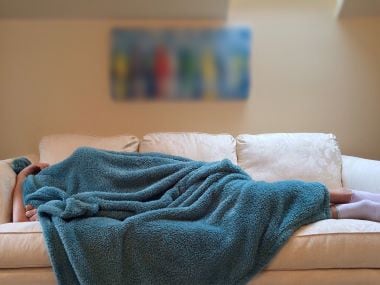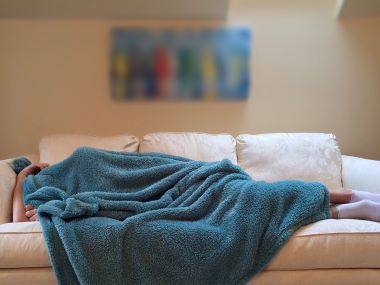Do you love your daytime naps? Now, research says that there might be more to 20 winks than meets the eye. According to new research, sleeping in the afternoon once or twice a week can reduce the risk of cardiovascular disease or CVD-related events such as heart attack and stroke. The study was published in the peer-reviewed journal Heart by the British Medical Journal. [caption id=“attachment_7357071” align=“alignleft” width=“380”]  Representational image. Image by Wokandapix from Pixabay[/caption] Why the fuss? Scientists have explored the relationship between day-time napping with cardiovascular health in the past, too, and reached different conclusions. While some previous studies found there was no link between the two, others reported that the duration of the nap was important. (One study even said that sleeping for more than 1 hour could increase the risk of heart disease.) In 2003, four researchers at the University Hospital of Lausanne, Switzerland, started a new study to try and work out the link between heart health and napping, once and for all, through a population study. They tried to iron out some of the problems with the previous studies, by excluding people who already had heart disease from their research and adjusting the data for factors like age and gender towards the end. The research For the study, the researchers signed up 3462 Swiss participants with no previous history of heart disease and asked them to make note of their weekly naps. The participants also had tests to determine their blood pressure, cholesterol, and other known risk factors of heart disease that could skew the data. Over the multi-year study, a panel of experts confirmed 155 cardiac events — including non-fatal ones — among the participants. The results: the researchers concluded that people who were taking one or two daytime naps in a week had a lower rate of CVD events compared with the non-napping participants. The reason might have to do with lower stress and fatigue levels among those who napped a couple of times a week. “Although the blood pressure and heart rate surge following awakening after an afternoon nap might increase cardiovascular risk in the short term, the stress releasing result of occasional naps might counteract this effect and explain the lower risk of CVD events for occasional nappers compared with non-nappers,” the researchers wrote in “Association of napping with incident cardiovascular events in a prospective cohort study”. In the normal course, our blood pressure rises and evens out through the day - studies show that it is usually lower during the night and early morning, and higher in mid-afternoon. Health articles in Firstpost are written by myUpchar.com, India’s first and biggest resource for verified medical information. At myUpchar, researchers and journalists work with doctors to bring you information on all things health. To read more on this topic, please read our article on Heart Attack.
According to new research, sleeping in the afternoon once or twice a week can reduce the risk of cardiovascular disease or CVD-related events.
Advertisement
End of Article


)

)
)
)
)
)
)
)
)



